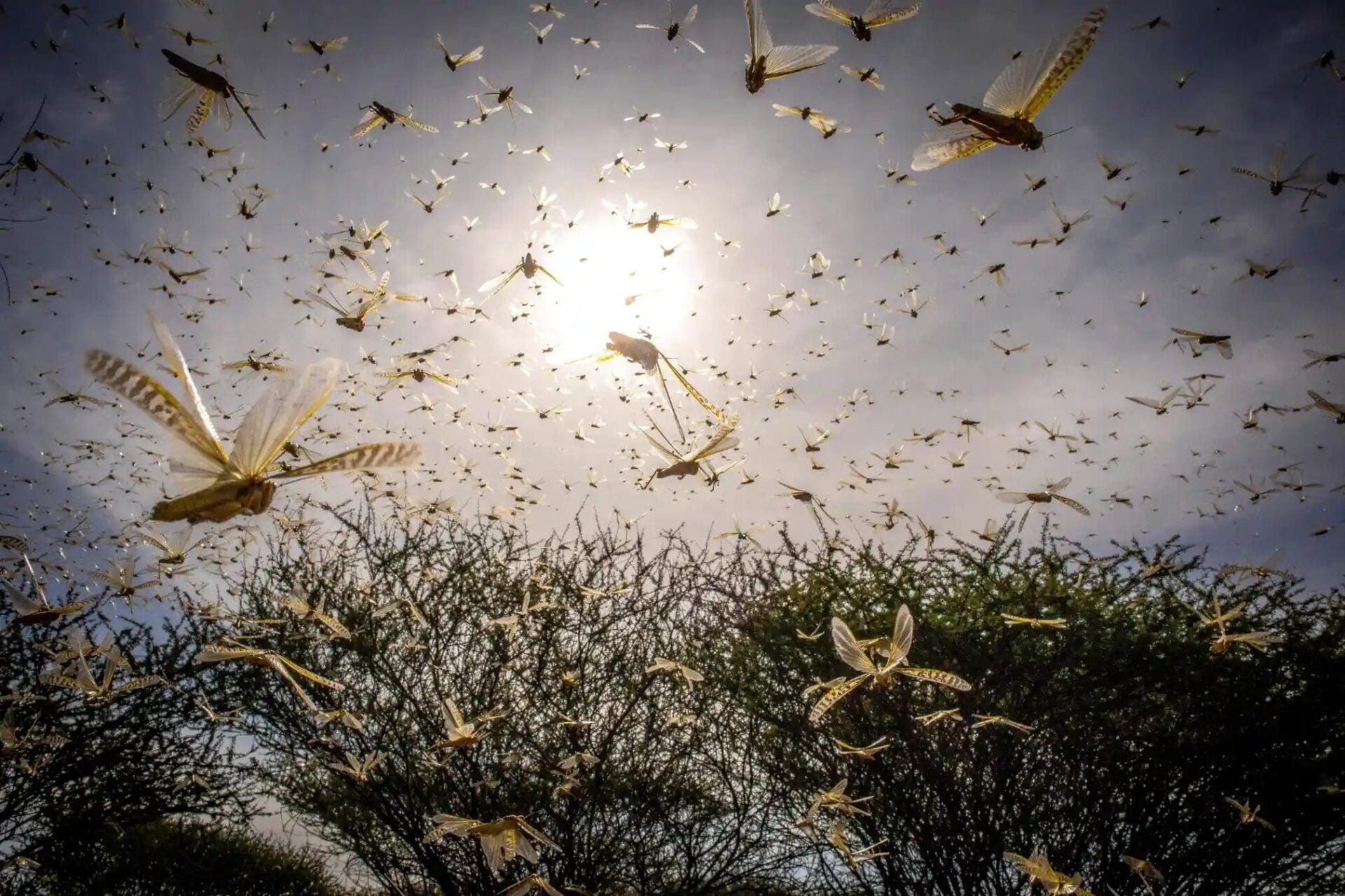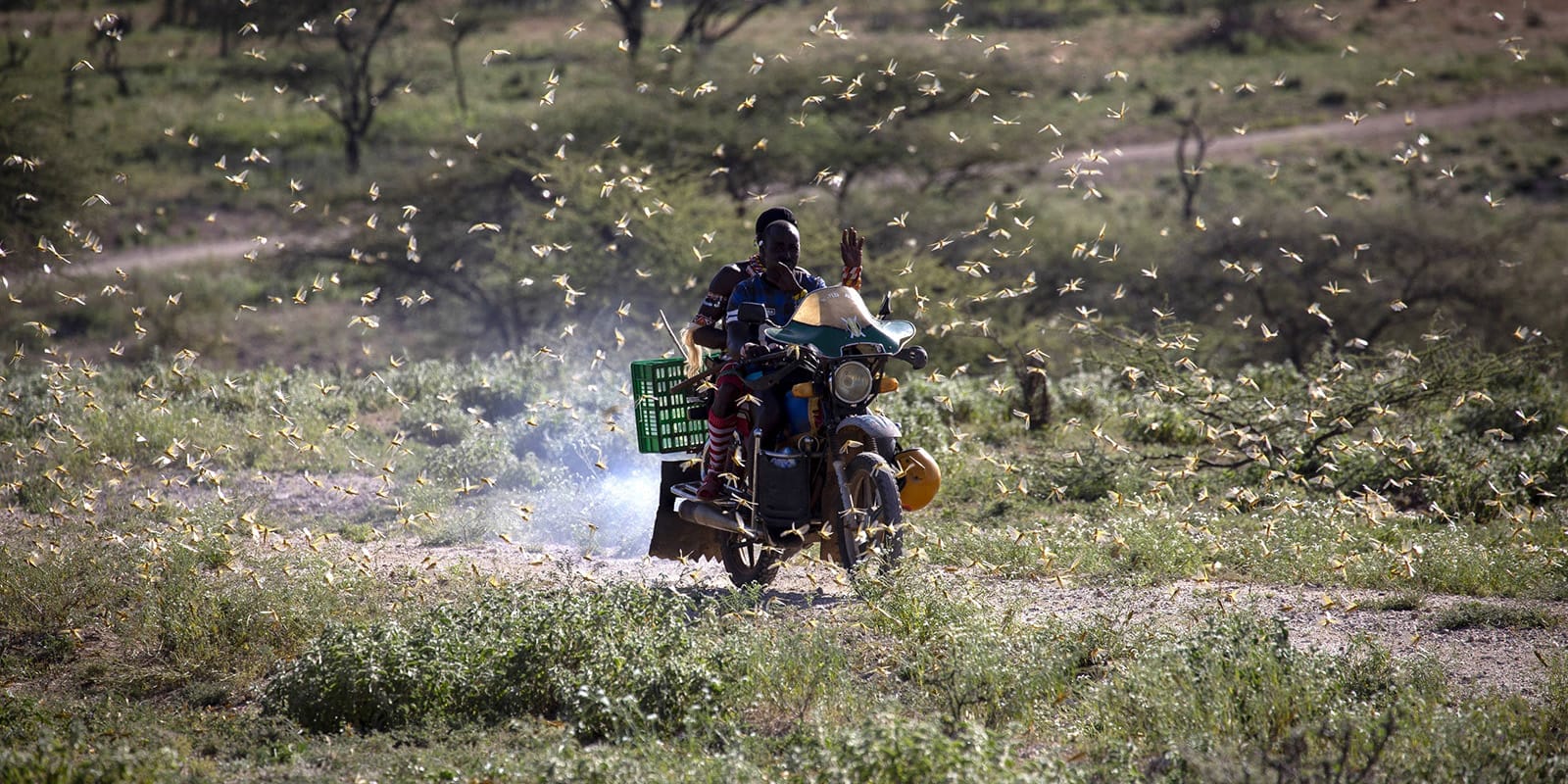
ASU’s Global Locust Initiative engages key actors in locust research and management to develop partnerships and solutions for transboundary pest management in agroecosystems around the world.
Locusts and grasshoppers have a long history of coexisting with humans but their outbreaks and management continue to have devastating impacts on human livelihoods and broader ecosystems alike. Desert Locusts were recently recognized by the UN as one of 10 interconnected disasters alongside COVID-19, the bleaching of the Great Barrier Reef and Amazon wildfires, indicating the scale and severity of their outbreaks.
Featured project

Locust species
Locusts are a special type of grasshopper whose outbreaks occur sporadically across much of the world and require extensive coordination to manage successfully. For some countries in Africa, the Middle East, South and Southeast Asia and South America, recent outbreaks are the worst seen in many decades. Each locust species has a unique set of biological traits and a distinct geographic range which span a landscape of cultural, political and ecological diversity. As highly mobile pests, they also link distant regions together in feedback loops of human and ecological processes. As such, finding solutions to more sustainably manage these formidable pests requires approaches that consider this complexity and coordinate broadly across disciplines and countries.